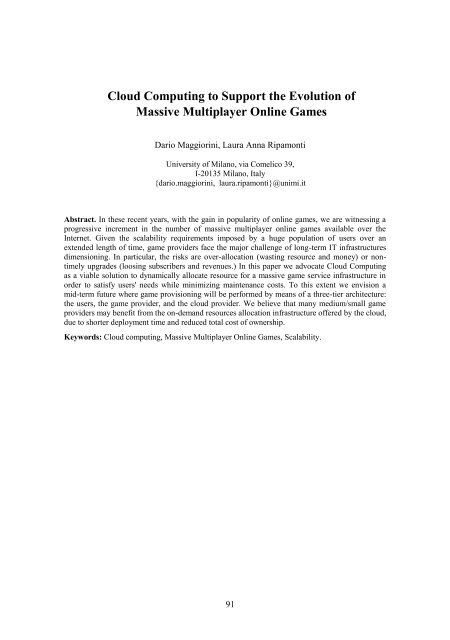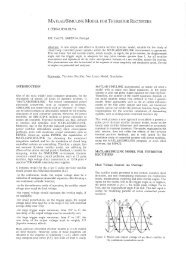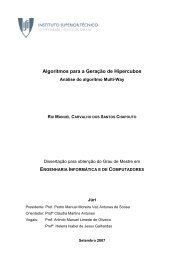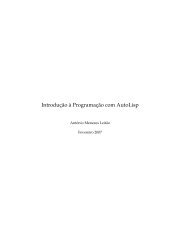Untitled - Universidade de Lisboa
Untitled - Universidade de Lisboa
Untitled - Universidade de Lisboa
Create successful ePaper yourself
Turn your PDF publications into a flip-book with our unique Google optimized e-Paper software.
Cloud Computing to Support the Evolution of<br />
Massive Multiplayer Online Games<br />
Dario Maggiorini, Laura Anna Ripamonti<br />
University of Milano, via Comelico 39,<br />
I-20135 Milano, Italy<br />
{dario.maggiorini, laura.ripamonti}@unimi.it<br />
Abstract. In these recent years, with the gain in popularity of online games, we are witnessing a<br />
progressive increment in the number of massive multiplayer online games available over the<br />
Internet. Given the scalability requirements imposed by a huge population of users over an<br />
exten<strong>de</strong>d length of time, game provi<strong>de</strong>rs face the major challenge of long-term IT infrastructures<br />
dimensioning. In particular, the risks are over-allocation (wasting resource and money) or nontimely<br />
upgra<strong>de</strong>s (loosing subscribers and revenues.) In this paper we advocate Cloud Computing<br />
as a viable solution to dynamically allocate resource for a massive game service infrastructure in<br />
or<strong>de</strong>r to satisfy users' needs while minimizing maintenance costs. To this extent we envision a<br />
mid-term future where game provisioning will be performed by means of a three-tier architecture:<br />
the users, the game provi<strong>de</strong>r, and the cloud provi<strong>de</strong>r. We believe that many medium/small game<br />
provi<strong>de</strong>rs may benefit from the on-<strong>de</strong>mand resources allocation infrastructure offered by the cloud,<br />
due to shorter <strong>de</strong>ployment time and reduced total cost of ownership.<br />
Keywords: Cloud computing, Massive Multiplayer Online Games, Scalability.<br />
91
















